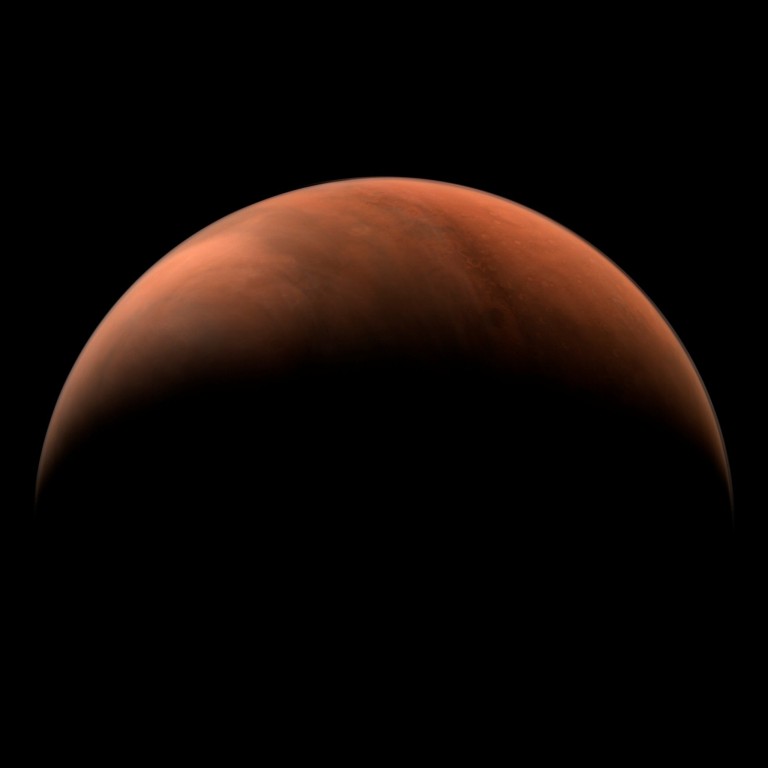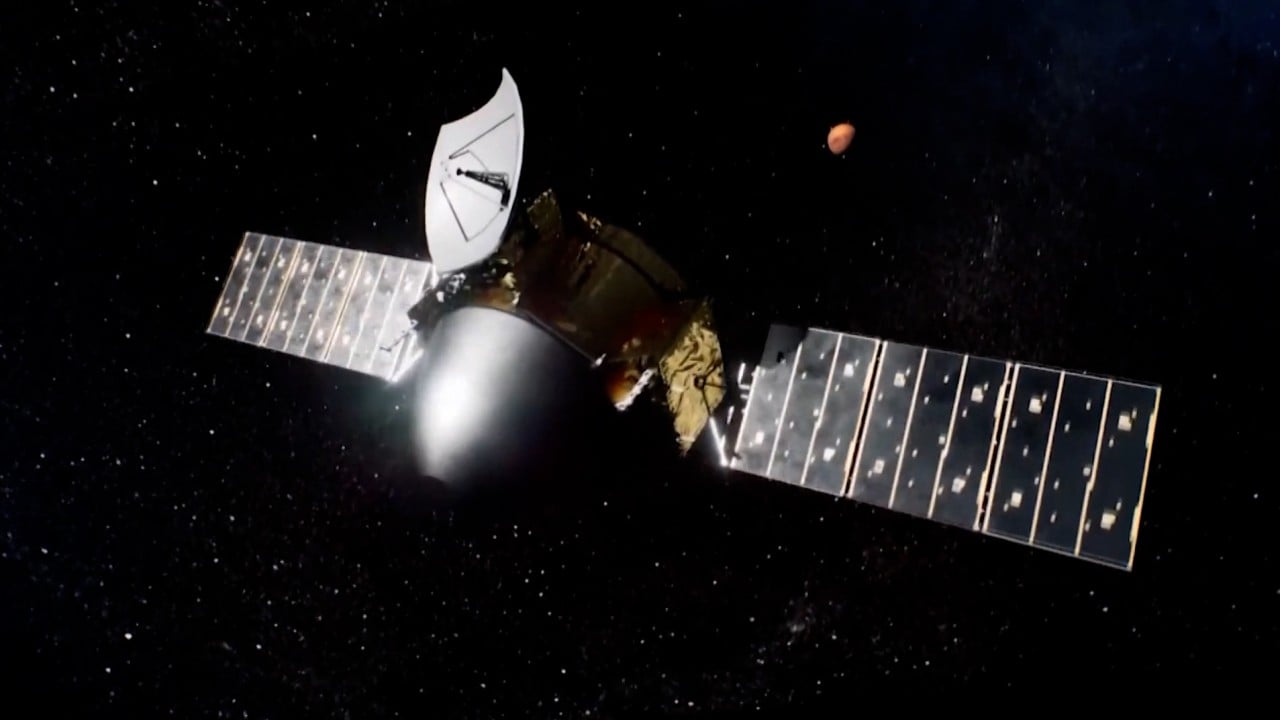
US and China exchange data on their Mars missions
- Nasa talks with the China National Space Administration about the Tianwen-1
- The purpose of the exchange is to lower the risk of a collision; other space agencies that operate Mars probes are contacted
Nasa and its Chinese counterpart have exchanged information on their Mars missions to prevent their spacecraft from colliding, despite heightened geopolitical tensions between the two countries.
Nasa had sought approval from Congress and talked with the China National Space Administration (CNSA) about the Tianwen-1, the Chinese Mars mission, the US space agency confirmed in a statement on Monday.
China to start building first space station as part of ambitious plans for year ahead
Nasa has been prohibited by law since 2011 through what is known as the Wolf clause from cooperating and collaborating with China unless congressional approval is granted case by case. Nasa must notify Congress at least 30 days in advance of any proposed contact.
Nasa’s statement coincided with China’s opening on Wednesday of its Five-hundred-metre Aperture Spherical Telescope, or FAST, to foreign astronomers. FAST, located in a remote part of the southern province of Guizhou, is the world’s largest single-dish radio telescope and the only observatory of its kind after the Arecibo telescope in Puerto Rico collapsed in December due to lack of maintenance.
Nasa acting administrator Steve Jurczyk said last week that the CNSA had shared orbital data and information on the position and velocity of Tianwen-1 to avoid collisions.
The agency also contacted other space agencies with spacecraft orbiting Mars, it said.
“To assure the safety of our respective missions, Nasa is coordinating with the UAE, European Space Agency, Indian Space Research Organisation and the China National Space Administration, all of which have spacecraft in orbit around Mars, to exchange information on our respective Mars missions to ensure the safety of our respective spacecraft,” Nasa said.
“This limited exchange of information is consistent with customary good practices used to ensure effective communication among satellite operators and spacecraft safety in orbit.”
But it did not reveal whether the exchange of information extended to data on future phases of the Tianwen-1, such as the planned landing in May.
Nasa gives the all-clear: Earth safe from asteroid Apophis for 100 years
Jurczyk said last week that this restriction had a negative impact on Nasa acquiring knowledge about China’s space programmes.
The Chinese spacecraft Tianwen-1 entered Martian orbit in February following the United Arab Emirates’ Hope, making it now eight man-made spacecraft actively operating in Mars’ orbit. Besides the two newcomers, there are three spacecraft from Nasa, two from the European Space Agency and one from the Indian Space Research Organisation.
The tension between Washington and Beijing in recent years has developed into a strategic competition in many fields, including in space. Despite the calls from the scientific community, there is no sign that the Wolf clause is going to be eased.
“It’s going to be up to the administration and Congress to determine if and how we engage with China on civil space activities as part of a broader strategy for the nation with China,” Jurczyk said.
This was not the first time the US and China space agencies have exchanged data. In 2019, CNSA and Nasa shared data for Chinese moon probe Chang’e 4.
Additional reporting by Jack Lau



